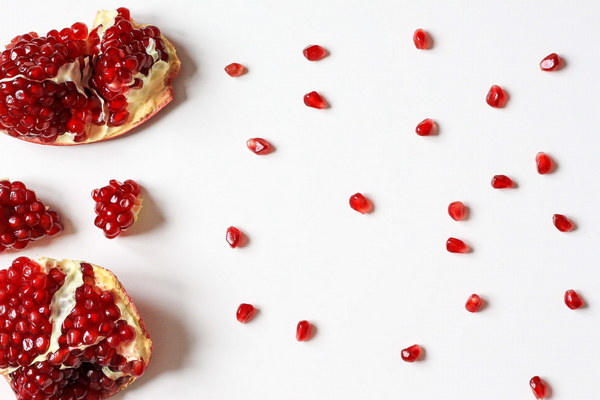Strengthening the Weak Pulse A Comprehensive Guide to Nutritional Supplements for Pulse Weakness
In traditional Chinese medicine (TCM), the pulse is considered a crucial indicator of a person's health and well-being. A weak pulse, also known as xu mai in Chinese, may suggest that a person is experiencing deficiencies in their body's energy or Qi, which can lead to a range of health issues. To combat this, TCM practitioners often recommend dietary adjustments and nutritional supplements that can help strengthen the pulse. This article aims to provide a comprehensive guide to nutritional supplements for pulse weakness, based on TCM principles.
1. Understanding Pulse Weakness
Pulse weakness can be caused by various factors, including stress, fatigue, poor diet, and underlying health conditions. In TCM, it is often associated with deficiencies in Yin, Yang, Qi, or Blood. The pulse is divided into several components, such as the depth, rhythm, and quality, which can help TCM practitioners diagnose the specific type of pulse weakness and recommend appropriate treatments.

2. Nutritional Supplements for Pulse Weakness
a. Astragalus (Huang Qi)
Astragalus is a well-known herb in TCM, widely used to boost the immune system and enhance Qi. It is often recommended for those with a weak pulse, as it helps to fortify the body's energy. Astragalus can be taken in various forms, such as raw herbs, capsules, or tea.
b. Ginseng (Ren Shen)
Ginseng is another popular herb in TCM, known for its ability to invigorate the body and improve overall well-being. It is particularly beneficial for individuals with a weak pulse, as it helps to nourish and replenish Qi. Ginseng can be consumed as a raw herb, in powder form, or as a tea.
c. Licorice Root (Gan Cao)
Licorice root is a versatile herb that can be used to harmonize other TCM herbs and enhance their effectiveness. It is also beneficial for pulse weakness, as it helps to nourish Yin and Qi. Licorice root can be taken as a raw herb, in powder form, or as a tea.
d. Goji Berries (Gou Qi Zi)
Goji berries are a superfood that is rich in vitamins, minerals, and antioxidants. They are known to enhance immune function and improve overall energy levels, making them a great choice for those with a weak pulse. Goji berries can be consumed raw, dried, or as a tea.
e. Schisandra Berries (Wu Wei Zi)
Schisandra berries are another potent herb that can help strengthen the pulse. They are believed to nourish both Yin and Yang, as well as Qi and Blood. Schisandra berries can be consumed as a raw herb, in powder form, or as a tea.
3. Dietary Adjustments
In addition to nutritional supplements, dietary adjustments can also help strengthen a weak pulse. Here are some tips:
a. Consume a balanced diet that includes plenty of fresh fruits, vegetables, whole grains, and lean proteins.
b. Avoid cold, raw, and difficult-to-digest foods, as they can further weaken the pulse.
c. Incorporate warm, nourishing foods such as soups, stews, and cooked grains into your diet.
d. Limit caffeine, alcohol, and other stimulants, as they can deplete Qi and exacerbate pulse weakness.
4. Lifestyle Changes
Improving sleep, managing stress, and engaging in regular exercise can also help strengthen a weak pulse. Here are some suggestions:
a. Aim for 7-9 hours of quality sleep each night.
b. Practice relaxation techniques such as yoga, meditation, or deep breathing exercises.
c. Incorporate moderate exercise, such as walking, swimming, or tai chi, into your daily routine.
In conclusion, pulse weakness is a common concern in TCM, and it can be effectively addressed through a combination of nutritional supplements, dietary adjustments, and lifestyle changes. By following the guidelines outlined in this article, individuals with a weak pulse can take steps towards improving their overall health and well-being.









